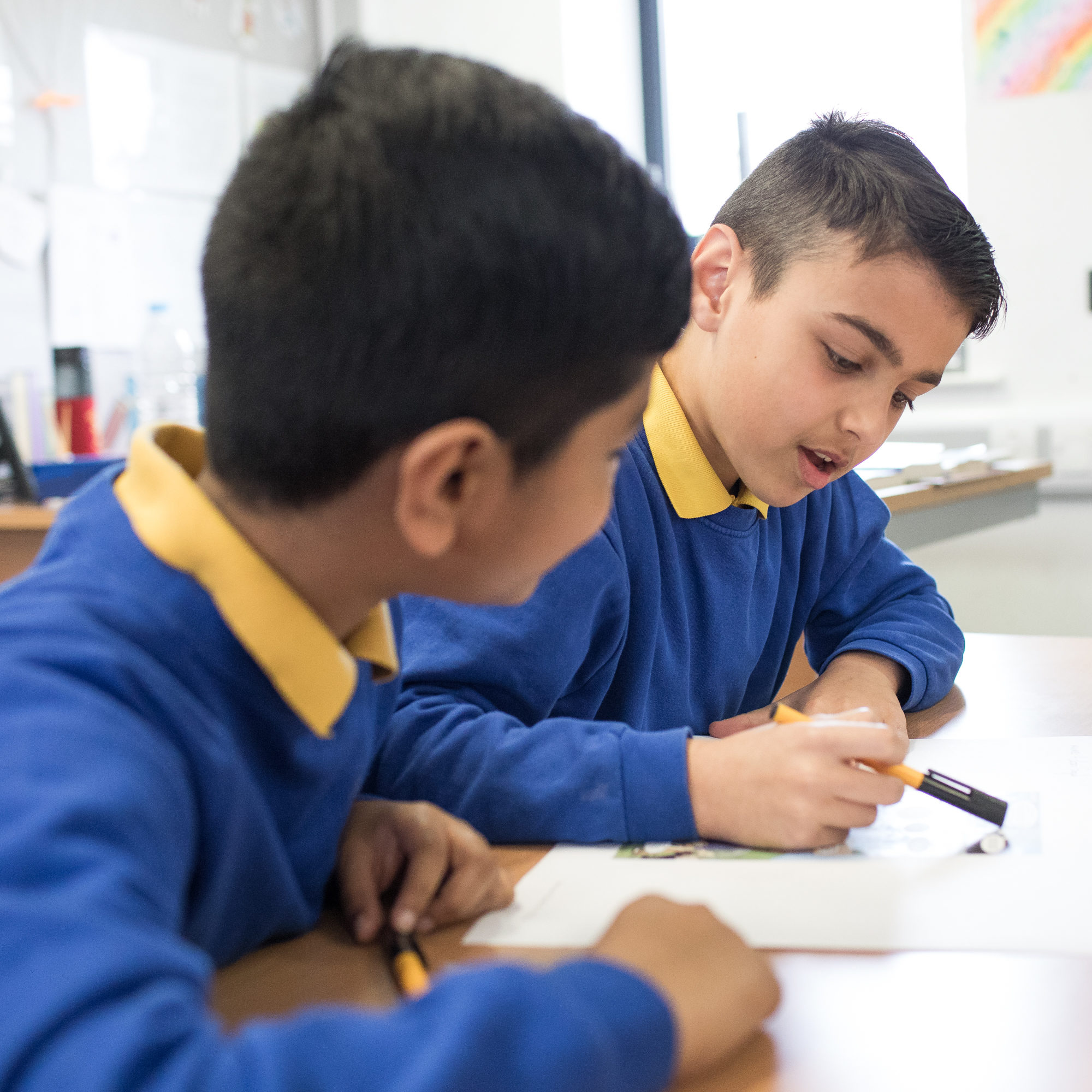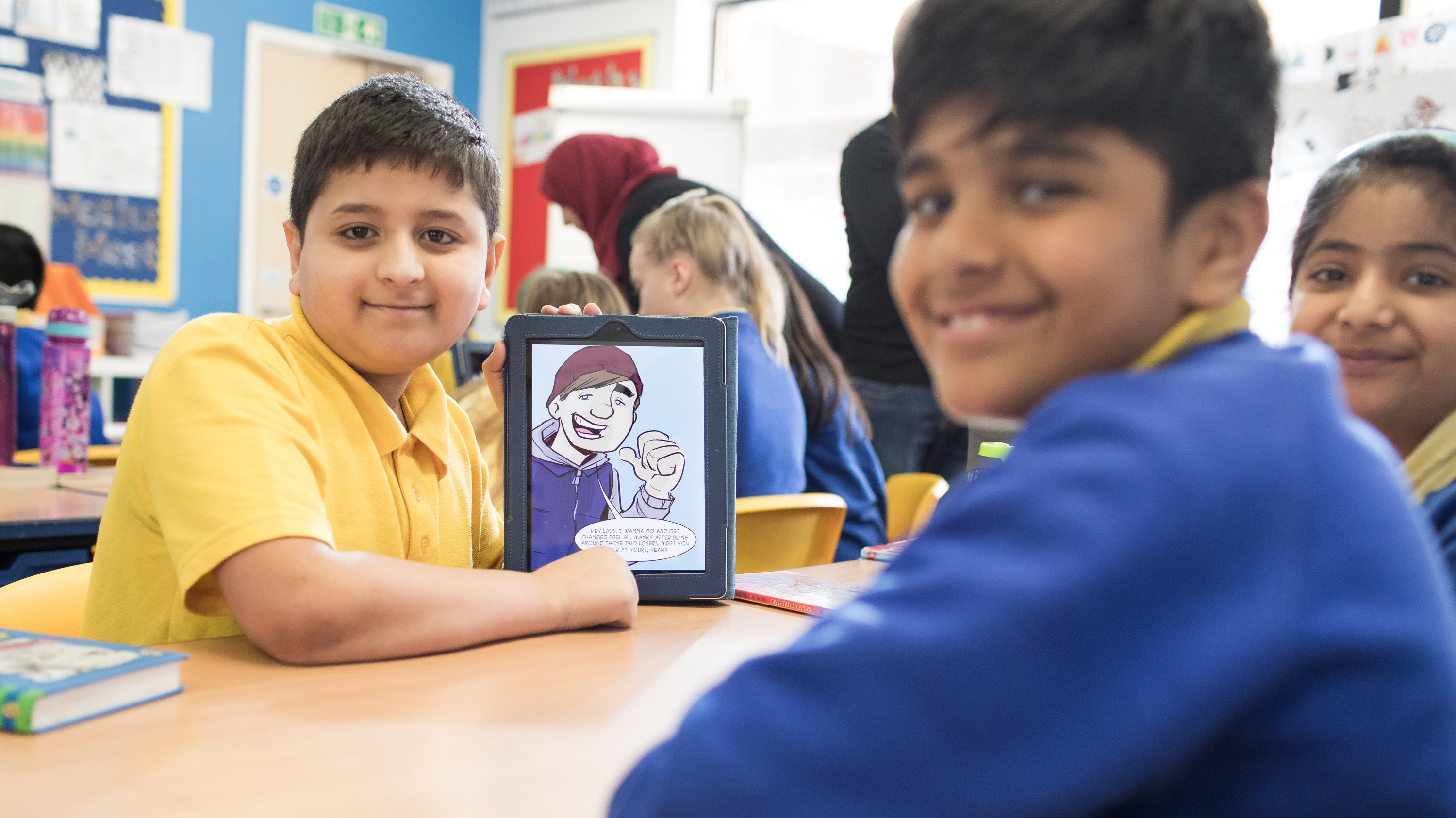CRC Project
Changing the narrative for Birmingham’s primary school pupils


Jeval is 10-years-old. He lives on a second floor maisonette with his mum in a part of Birmingham characterised by multiple deprivation, poverty and crime. Jeval’s teacher described him as a boy who, upon starting year 6, “could have gone either way“.
You might have said that Jeval’s narrative was already set. However, despite the odds being stacked against him somewhat, Jeval was recently shortlisted for a mental health and wellbeing award. He’s making good progress in all core curriculum areas and thriving socially and emotionally. Now his teacher describes him as a role model to his friends because “he makes the right choices in school and is reflective of his actions, particularly if they are sometimes not quite up-to-scratch.” What is the reason for Jeval’s success? We believe he has chosen to change his narrative and not become what some might have expected of him. Furthermore, we believe this is possible for everyone…given the right set of conditions.
So when the Youth Endowment Fund (YEF) put out a call to find interventions and organisations that could prevent children and young people from becoming involved in violence, we teamed up with education partnership, Titan and youth organisation, Emerge Leadership to answer that call.
Our research has long established that all young people can be vulnerable in today’s world and are open to being influenced across many contexts. Sadly, the reality is that they are sometimes misled to make choices that can lead them to serious harm purely to satisfy the self-interest of predators. We have also found a rising trend of young people preying upon other young people, so we have sought to understand this and tackle it.
Equipping young people to keep themselves safe and free from being drawn into criminality, including serious violence, means providing them with a set of tools to help them better manage problems and make positive choices that lead to their own, better futures. This isn’t straightforward. Vulnerability surfaces in many ways, and at different times, throughout the journey from adolescence to adulthood. Addressing this challenge and counteracting the potential impact on all young people requires a universal approach, delivered across an entire school year group to ensure a base capability to identify, consider and respond to risks and generally build resilience. Even this isn’t enough for some, and our research identified that between a quarter and a third need additional help and more personalised support.
Having discovered this, our early design conversations quickly determined that, through Titan’s respected and trusted relationships with local schools, Lime’s universal offer, and Emerge’s targeted mentoring support, we had a compelling proposition to take to the YEF. Fortunately, they agreed and awarded first two and then a third year of funding to pilot our model and generate sufficient hard evidence of the difference that could be made.

Working mainly with Titan’s partner schools, we trained teachers in the distinct approach required to facilitate the Choices Programme. This features weekly sessions to provoke challenging conversations, helping young people better understand themselves and how they make their choices while building critical thinking, decision-making and problem-solving skills to protect them for the rest of their lives. The material offers teachers a route to deliver complex and difficult topics, all of which have been mapped against the PSHE programme of study and the latest Ofsted inspection framework. For those experiencing more significant challenges, as highlighted through our wellbeing data collection metrics, the project provides mentoring from experienced local community leaders. Group and individual mentoring sessions for the most vulnerable bring another unique dimension to this tiered intervention, combining a universal skills-based programme with targeted support for at-risk students, underpinned by Titan’s enviable reputation of supporting local schools.
Universal programmes have been found to help prevent problem behaviours, aggression, anti-social behaviour, and violence through developing problem-solving, self-control, anger management, conflict resolution, social and emotional skills, and other life skills. Tiered programmes have been particularly effective with at-risk children (such as those presenting aggression or anti-social behaviour). Mentoring is seen as a promising intervention with a developing evidence base. The Confident Resilient Children (CRC) Project enables young people to respond positively to challenging situations and safely build personal resilience, emphasising the difficult transition to secondary school. The entire project is conducted within the safe confines of school, a haven for young people emotionally and physically. Teachers are supported to create a more vigilant space where young people feel comfortable exploring alternative approaches, and teachers are provided with the tools to manage difficult dialogue and spot early-warning signs.
After two years of a feasibility study, independent research has been particularly favourable, prompting the project to be put forward for a pilot to establish how best to scale the initiative across Birmingham’s 300+ primary school estate.